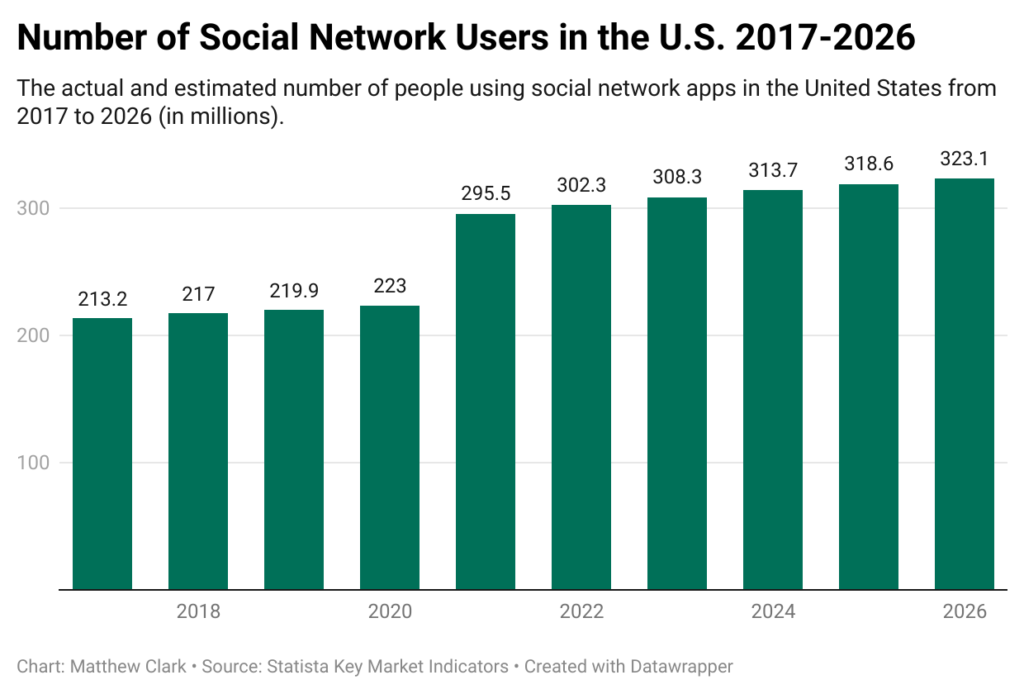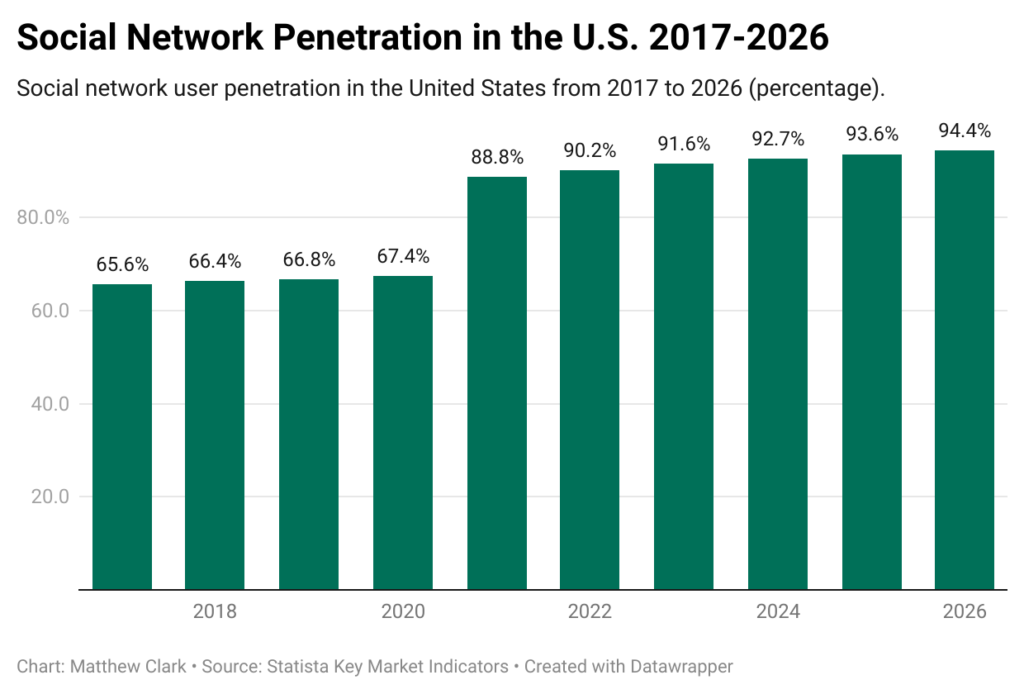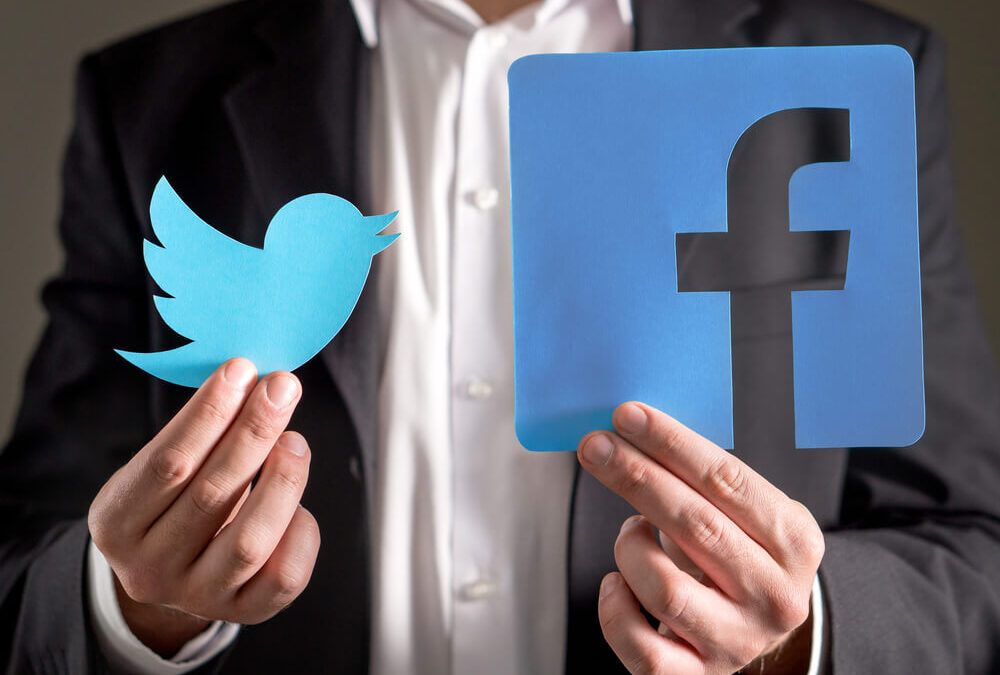I don’t use social media all that much. Neither does my co-host and research analyst Matt Clark.
But it’s unavoidable. It’s almost weird if you don’t have some form of social media that you can point people to — which is why Jack Dorsey, the creator of Twitter, turned some heads when he stepped down as CEO last week.
In this week’s Investing With Charles, Matt and I discuss Dorsey’s move and why he might have wanted to do so despite social media’s prevalence in today’s culture.
We also pit Twitter Inc. (Nasdaq: TWTR) against Meta Platforms Inc. (Nasdaq: FB) to see which is the better social media stock to buy now.
Here are some highlights from our conversation.
Dorsey Leaves Twitter
Matt: I’ve got an interesting one for you today. Last week it was an announced that Jack Dorsey, who started Twitter and has been its CEO for the last 15 years, has stepped down as Twitter CEO immediately.
Dorsey remains the CEO of Square, which is a very popular fintech company, but this brought about an interesting question. We have these two social media giants in Twitter and Meta. (Meta, of course, formerly Facebook, still trades under FB.)
Charles: How many years did it take you to start calling Google Alphabet instead of Google? It’s going to take me so long to start to remember to call Facebook Meta.
Matt: It’s still Google unless I’m referring to it as a proper company. Otherwise, it’s still Google. Facebook is still Facebook. Meta, if I’m referring to it as a company — that’s going to take a little time to get used to.
Charles: You pretty much have to rewire your brain to make that distinction.
Matt: You do, especially when they still maintain the tickers, like Google’s G-O-O-G or G-O-O-G-L for either Class A or Class C, and then you have FB for Meta.
Regardless, you have two companies here that have faced a pretty significant amount of headwinds over the last several months. Meta came under fire with a whistleblower investigation with The Wall Street Journal … corporate culture issues, questions over its algorithm, its business practices. Some shady things that have been uncovered by The Wall Street Journal. Twitter, on the other hand, hasn’t faced those negative headlines.
But when you have a CEO who started your company and remained CEO for 15 years all of a sudden step down, it’s going to generate a lot of interest. And that is exactly what happened. Twitter’s stock had dropped exponentially since Dorsey announced that @Jack was no longer a thing anymore on Twitter.
So, he brought about an interesting question of comparing these two stocks to see if one is a better social media stock to buy.
The Rise of Social Media
Matt: They’re both social media stocks. Technically in terms of their sector, they are in web-based data and services, which is ironic concerning how they’re in the market of selling data, collecting it and selling it. And you and I have a similar outlook when it comes to social media.
I don’t think either one of us uses it all that much. I’m not necessarily a big fan. Twitter is my platform of choice. I’m not really a big Facebook guy.
Charles: I don’t even have an account on Facebook. I deleted it, which was a long process, by the way. It took me years to actually successfully delete it.
Matt: I’m good with people not knowing what I’m having for dinner, really. But if you look at the numbers here … In 2020, the number of social network users in the U.S. was right around 223 million people, which is a good percentage of the population. However, if you scale that up into 2021 and beyond, 323.1 million people will be using social media by 2026.

Charles: That’s essentially everybody over the age of four, I think.
Matt: Exactly. The penetration of social networks in the U.S. is going to go from 67% in 2020 to 94.5% in 2026. Social networking is on track to replace regular networking. It’s going to replace face-to-face conversation as much as it already has.
So, you have these big powerhouses like Twitter and Meta that have been in the game for a while but have faced some significant headwinds. My question to you is: As an investor, if I’m really interested in capitalizing on this trend of 94.5% penetration of social networking by 2026, which horse do I want to back here?

Charles: Let’s go back to Jack Dorsey for a minute. Jack Dorsey is the brains behind two of the bigger names in technology of the last two decades, Twitter and Square. He chose to disengage from one and put his focus on the other. It’s telling which one he chose.
He chose to continue running Square. Why? Well, I don’t know. I can’t call him up and ask. We’re not that tight. But to me, it looks like Dorsey looked at his two creations here and said: “Which one’s likely to be the winner over time? Which one’s likely to make more money? Which one’s likely to be worth my time?”
Is Fintech a Safer Investment?
Charles: Dorsey’s a billionaire. He doesn’t have to do anything. He could just sit on a beach all day if he wanted to, but he’s decided that Square is worth his time.
I would tend to agree.
I don’t use Square. I use some of his competitors like PayPal and Venmo. I use various fintech products, but Square is very popular. And fintech is slowly replacing the banking system or, at least, learning to coexist with the banking system.
So, to me, fintech is a much bigger story. If I were Dorsey, I would’ve made the same decision. You can’t really be CEO of two big companies and give both attention. If you had to choose, I would have chosen Square as well.
Back to TWTR vs. FB
Charles: Now, what does that mean for Twitter versus Meta (Facebook)?
There’s not unlimited ad revenue out there. The ad space is dominated by Facebook and Google. Those are the platforms gobbling up most of that revenue. Facebook has been remarkably good about monetizing its users. Facebook isn’t the product. The users are the product. Facebook sells user data, and it’s good at it.
Twitter has been far less successful in monetizing its users. It just doesn’t have the same level of penetration. Twitter hasn’t figured it out. It has troves of data, but it just hasn’t figured out how to properly monetize it to the extent that Facebook has.
So, here’s my bottom line: If Dorsey doesn’t feel like Twitter’s worth sticking around for, why should you or I?
Click here for further analysis of TWTR and FB in this week’s Investing With Charles.
Where to Find Us
Coming up this week, Matt will have more on The Bull & The Bear podcast, so stay tuned.
Don’t forget to check out our Ask Adam Anything video series, where chief investment strategist Adam O’Dell answers your questions.
You can also catch Matt every week on his Marijuana Market Update. If you are into cannabis investing, you don’t want to miss Matt’s weekly insights.
Remember, you can email my team and me at Feedback@MoneyandMarkets.com — or leave a comment on YouTube. We love to hear from you! We may even feature your question or comment in a future edition of Investing With Charles.
To safe profits,
Charles Sizemore
Co-Editor, Green Zone Fortunes
Charles Sizemore is the co-editor of Green Zone Fortunes and specializes in income and retirement topics. He is also a frequent guest on CNBC, Bloomberg and Fox Business.







